As mentioned by Eryk Sun, you can get it with AssocQueryString. Here's a powershell implementation as he mentioned mostly derived from this: http://pinvoke.net/default.aspx/shlwapi.AssocQueryString
$Signature = @"
using System;
using System.Runtime.InteropServices;
using System.Text;
public static class Win32Api
{
[DllImport("Shlwapi.dll", SetLastError = true, CharSet = CharSet.Auto)]
static extern uint AssocQueryString(AssocF flags, AssocStr str, string pszAssoc, string pszExtra,[Out] System.Text.StringBuilder pszOut, ref uint pcchOut);
public static string AssocQueryString(string extension)
{
return AssocQueryString(AssocF.None, AssocStr.Executable, extension);
}
internal static string AssocQueryString(AssocF assocF, AssocStr association, string assocString)
{
uint length = 0;
uint ret = AssocQueryString(assocF, association, assocString, null, null, ref length);
if (ret != 1) //expected S_FALSE
{
return null;
//throw new InvalidOperationException("Could not determine associated string");
}
var sb = new System.Text.StringBuilder((int) length); //(length-1) will probably work too as null termination is added
ret = AssocQueryString(assocF, association, assocString, null, sb, ref length);
if (ret != 0) //expected S_OK
{
return null;
//throw new InvalidOperationException("Could not determine associated string");
}
return sb.ToString();
}
[Flags]
internal enum AssocF : uint
{
None = 0,
Init_NoRemapCLSID = 0x1,
Init_ByExeName = 0x2,
Open_ByExeName = 0x2,
Init_DefaultToStar = 0x4,
Init_DefaultToFolder = 0x8,
NoUserSettings = 0x10,
NoTruncate = 0x20,
Verify = 0x40,
RemapRunDll = 0x80,
NoFixUps = 0x100,
IgnoreBaseClass = 0x200,
Init_IgnoreUnknown = 0x400,
Init_FixedProgId = 0x800,
IsProtocol = 0x1000,
InitForFile = 0x2000,
}
internal enum AssocStr
{
Command = 1,
Executable,
FriendlyDocName,
FriendlyAppName,
NoOpen,
ShellNewValue,
DDECommand,
DDEIfExec,
DDEApplication,
DDETopic,
InfoTip,
QuickTip,
TileInfo,
ContentType,
DefaultIcon,
ShellExtension,
DropTarget,
DelegateExecute,
SupportedUriProtocols,
Max,
}
}
"@
Add-Type -TypeDefinition $Signature
[Win32Api]::AssocQueryString(".docx")

